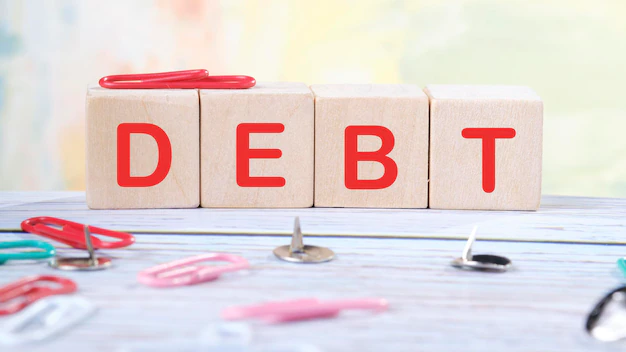Debts cannot take steps that intimidate you. It’s the debt collectors who may intimidate you – by instilling fear and even harassing you. Knowing what can debt collectors do to you as well as what they are prohibited to do, makes you aware of your rights as a consumer. It also empowers you to take the necessary steps whenever debt collectors violate your rights.
Consulting a knowledgeable bankruptcy attorney in Santa Rosa will prevent you from falling into the trap.
Let us share with you some statements so that you can assess whether the debt collector’s action against you is allowed or not.
- A debt collector demands that you pay your business debts.
Impossible. Business debts are not covered under the Fair Debt Collection Practices Act.
- He says that he can make money from your paycheck to pay your debt even without a court order.
Yes, but the debt collector must first file a lawsuit against you to obtain a court order — known as a garnishment — that allows them to deduct money from your paycheck to pay your debts. Likewise, a debt collector may also get a court order to withdraw funds from your bank account.
- A debt collector provides you with accurate information about your debt.
Definitely. A debt collector needs to tell you a few key facts about your debt, also called “validation information.” Such information includes how much you owe, who the original debt was owed to, and what you can do if you don’t think this is your debt.
- He can tell your family and friends about your debt.
No. If a debt collector talks about your debt with anyone other than you or your spouse, that is often considered improper.
As long as you have informed the debt collector that you have retained an attorney, he is required to contact your attorney.
Moreover, he cannot publicly reveal your debts, including sending postcards or putting information on envelopes.
- Debt collectors may disclose your outstanding debt to credit reporting organizations.
Yes. Debt collectors may disclose your outstanding debt to credit reporting organizations. However, they cannot submit misleading information regarding your debt. If you file a written dispute with a debt collector, the debt collector is required to inform any credit reporting business that it has reported your debt to you and that you have filed a written dispute with the debt collector.
What law governs debt collection practices?

The Fair Debt Collection Practices Act (FDCPA) is a federal legislation regulating the behavior of third-party debt collectors attempting to collect debts on another person’s or entity’s behalf. A debt collection agency is one such example of third-party debt collectors.
Moreover, the FDCPA protects reputable debt collectors from unfair competition and encourages consistent state action to protect consumers from abuses in debt collection.
It also limits the act’s coverage to personal, family, or household transactions. Debts owed by businesses (or individuals for business purposes) are not subject to the FDCPA.
If a debt collector violates the FDCPA, the debtor can sue them in a state or federal court for damages and legal fees within one year of the violation.
On the other hand, debtors who have been wrongfully collected from by a debt collector can sue them in a state or federal court for damages and legal fees if they do so within one year of the violation.
What debts does the FDCPA cover?
The FDCA covers the collection of the following:
- Mortgages
- Credit cards
- Medical debts
- Other obligations for personal, family, or household purposes
It does not cover business debts. It also does not generally cover collection by the original creditor to whom you first became indebted.
What debt collectors are allowed to do:
Now, let’s talk about what debt collectors can do:
1. Attempt to collect payment on a past-due loan
The statute of limitations applies to all unsecured obligations, such as credit card debt and medical costs. It begins when you fail to make a payment on a debt.
When the statute of limitations expires, your unpaid obligation is deemed “time-barred,” which means it can no longer be collected.
Consumer debt is subject to a four-year statute of limitations in California. In practice, this implies that a creditor cannot obtain a judgment in court after four years, thereby rendering the debt uncollectible.
However, you are still liable for the loan, and debt collectors may pursue compensation on your previous financial commitments.
2. Use social media to send direct messages to borrowers who owe
They must observe strict guidelines on using Facebook, Instagram, and Twitter.
3. File a lawsuit against you for failure to pay a debt
As a last resort, debt collectors can file a lawsuit against you to recover payment on a debt. Because most debtors fail to appear in court and thereby lose by default, these cases frequently result in wage garnishment, bank levies, or a combination of the two.
4. Sell your debt to a third party
An uncollectible debt may be resold, or the balance of a debt may be sold if the collector has received only a partial payment. As a result, if one debt collector ceases to contact you regarding a debt, don’t be shocked if another begins to do so. You should always seek written confirmation of your promise to pay off a debt in full so that you have documentation to support it.
5. Work up a payment plan for what you owe
Since debt collectors purchase loans for pennies on the dollar, they have pretty substantial profit margins to collect the total amount of money owing. It provides them with greater negotiation leverage when negotiating payment from a customer. A settlement for 25 percent or 30 percent of what you owe may be possible through negotiation. Once again, make sure to have the agreement in writing so that you have documentation that the debt has been considered paid in full for the agreed-upon settlement sum.
Five practices debt collectors are prohibited to do
1. Threaten, harass, or publicly shame you
Debt collectors cannot threaten you with physical violence or arrest. They are also prohibited from lying or using foul or indecent words. Additionally, debt collectors are prohibited from threatening to sue you unless they have a genuine intention to take that debtor to court.
2. Contact you between 8 a.m. and 9 p.m.
Debt collectors are not permitted to contact you outside of these hours.
Furthermore, they are also not allowed to do the following:
- calling you multiple times a day for collection calls
- cause the telephone to ring repeatedly in an attempt to collect payment
3. Take money from your wages, bank account, or benefits
It’s unlawful for debt collectors to do garnishment – unless they have sued you and a court has entered its judgment against you for the amount of money you owe. Creditors are only allowed to garnish your wages and bank accounts to the extent that the law allows them to. In general, social security and veterans’ benefits cannot be garnished.
4. Charge or collect interest on your debt
Debt collectors are only permitted to charge or collect interest on your debt if they are expressly authorized to do so by the agreement that created the debt or if they are otherwise allowed to do so by law.
5. Pretend to represent a government agency
The FDCPA prohibits debt collectors from misrepresenting themselves as representatives of any government agency, including law enforcement. They are also not permitted to claim to be employed by a consumer reporting agency.
Having a basic understanding of what can debt collectors do to you as well as what they are not allowed to do is your first step in dealing with them.
Having a competent bankruptcy attorney by your side is your best decision!
If you need assistance in dealing with an aggressive debt collector, consult the attorneys-at-law at Embolden Law PC. Our bankruptcy lawyers in Santa Rosa, California have full knowledge and valuable experience to help you in your financial situation. Call our law firm now or schedule an appointment.
Share This Post!





